I've just got back from a fortnight in Mombasa on holiday, and thought I'd tell you all about a few outdoorsy-related things. I'll do a separate post about an adze I bought there under edged tools.
Without leaving the hotel it was possible to see animals like yellow weaver birds, camouflaged gecko, vervet monkeys and this 18" lizard, which wasn't scared of me at all. It could be found napping by the pond every afternoon. The monkeys steal from people's rooms, will take food from your hand, and are very crafty. They sometimes make an appearance at dinner when they know no one is looking- bread disappears from side plates.
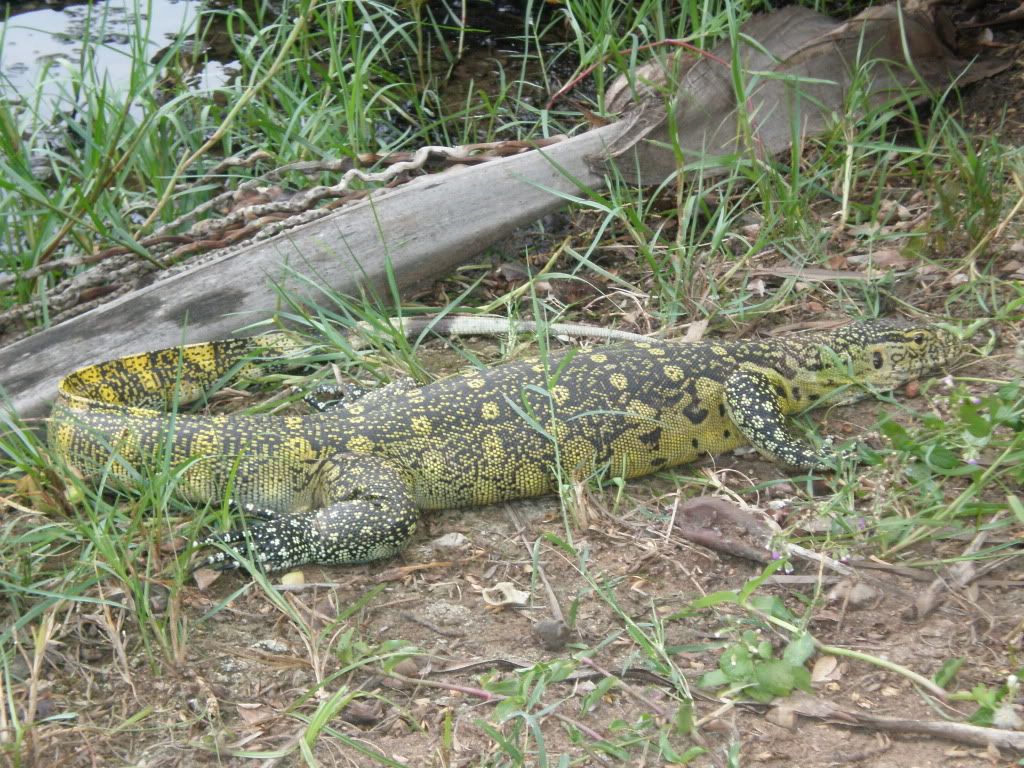
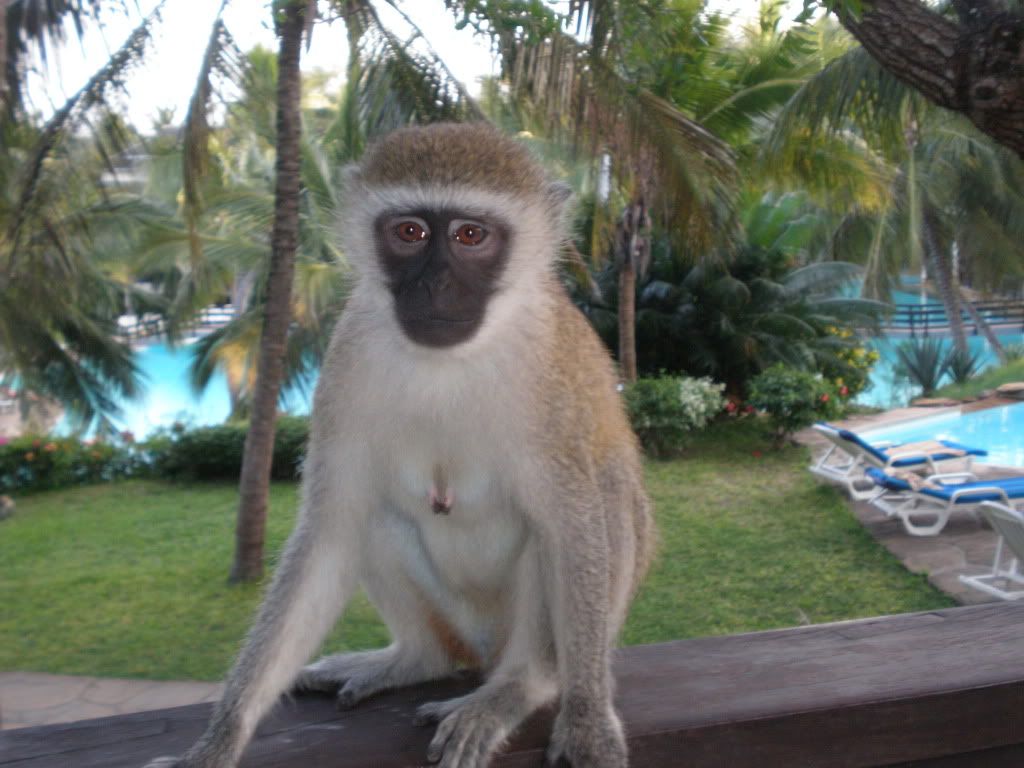
We went on safari to East Tsavo, which is ginormous and convenient to get to. Animals like giraffe, elephant, zebra and the various impala/gazelle/ dik dik are easily seen, and we saw 7+ lionesses. The voi safari lodge was idyllic. Fed by a spring, it overlooked the park like a kind of paradise. Having seen so many documantaries, I thought I knew all the local animals, but there were a lot of surprises; eagles, owls, massive porcupines, rock hyrax that let you get within a metre of them! In Tsavo West there were less animals and it was very dry. People who had been to Amboseli national park said that they could see animals dying because of the drought, and sometimes smell death in the air. The people there are faring little better. I'm glad I didn't go.
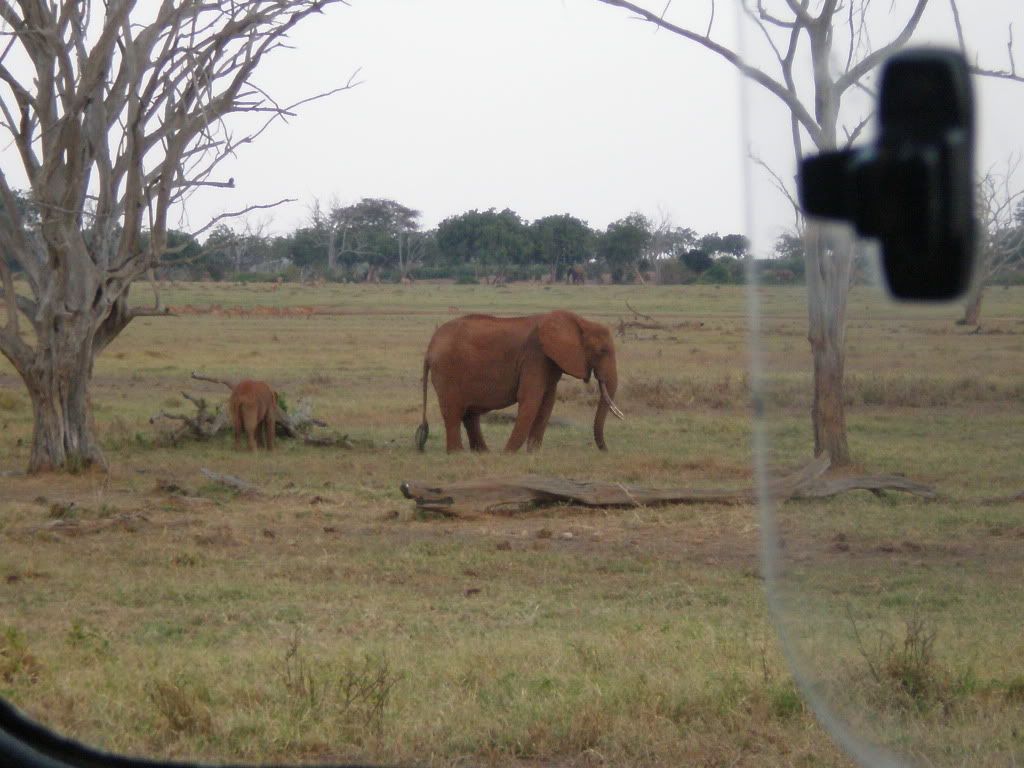
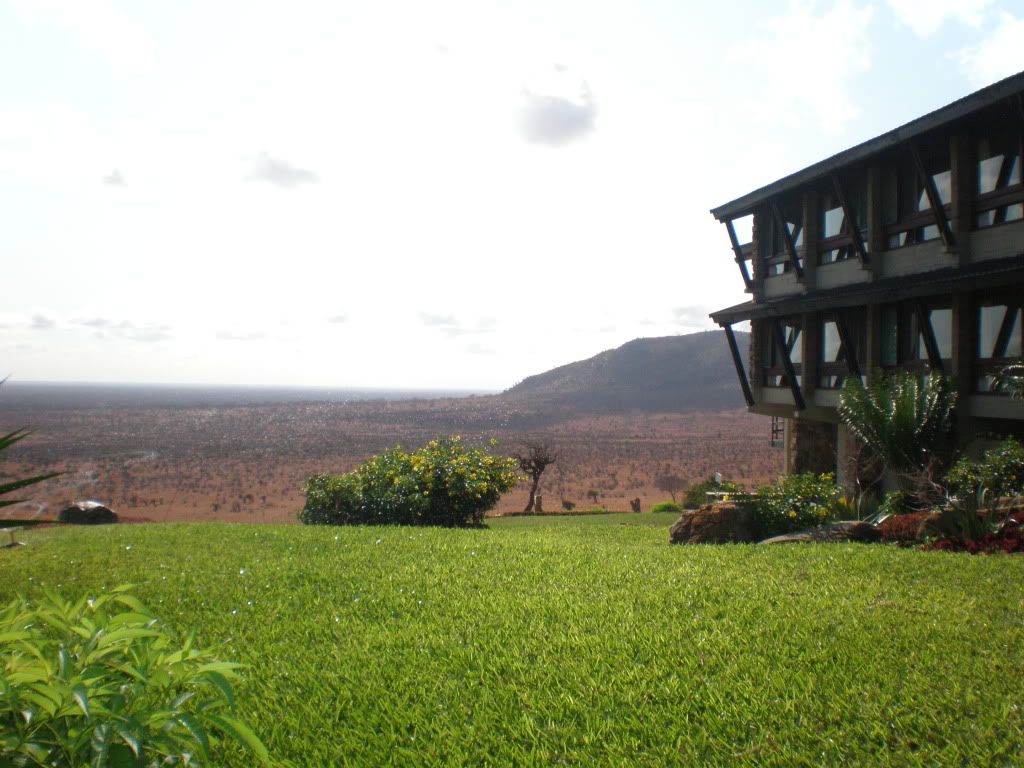
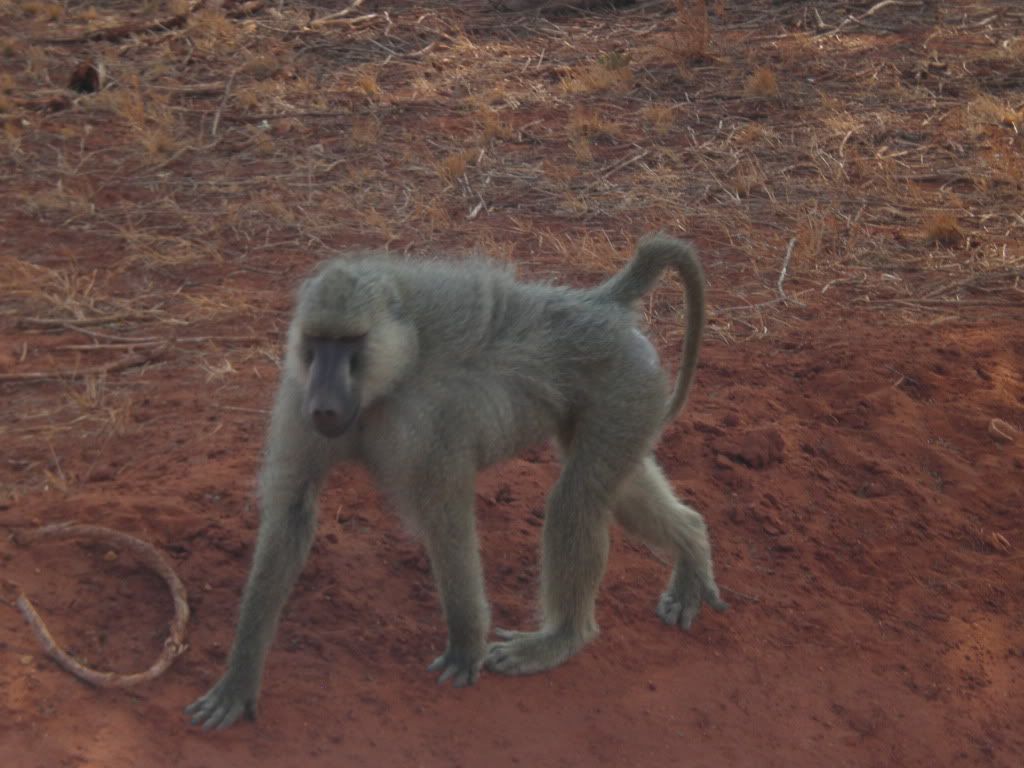
I thought cats were the same everywhere, but cat's that are semi-wild and don't get fed are very different from the pampered animals I'm familiar with. They grab your hands with their claws if you're holding food. On one occasion I was feeding fish in the hotel pond, and a cat came over to watch. I threw the bread closer to it because it amuses when cats splash at the water. Within two seconds it had punched the water three times and pulled a one pound tilapia out. It ate it right beside me! I'm an accessory to fish-murder! People and cats alike are hungry in Africa. You can see tilapia on sale at the fish counter, but they're a native of the nile and greedy little fellas that probably grow fast and are easy to farm as a result.
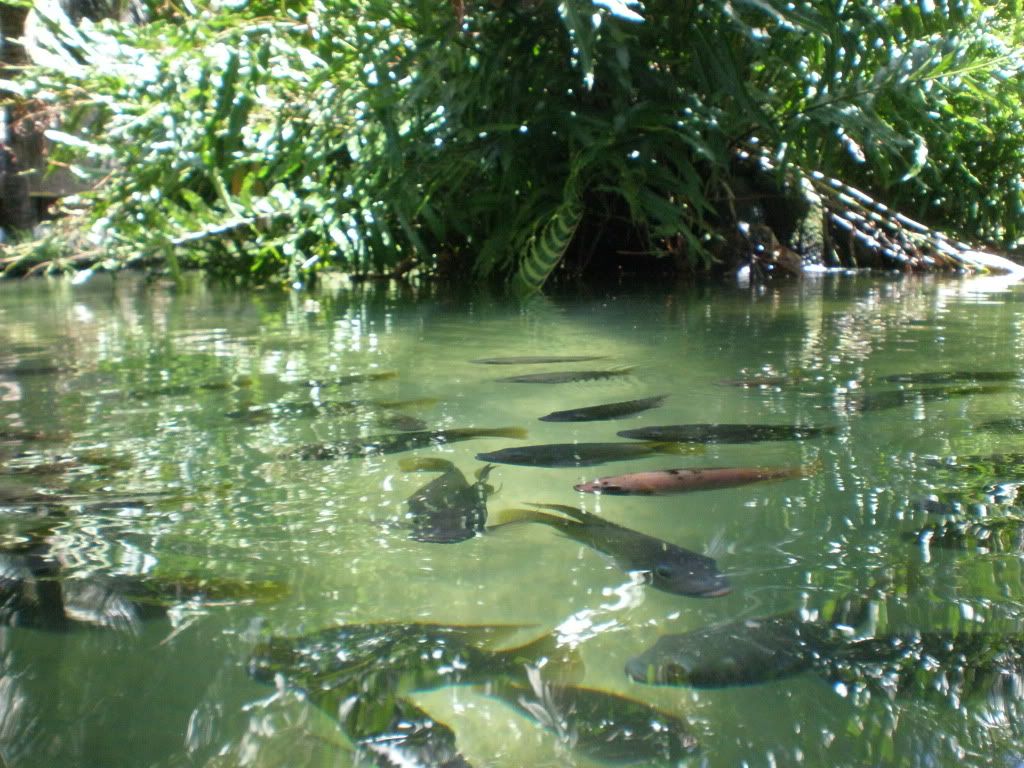
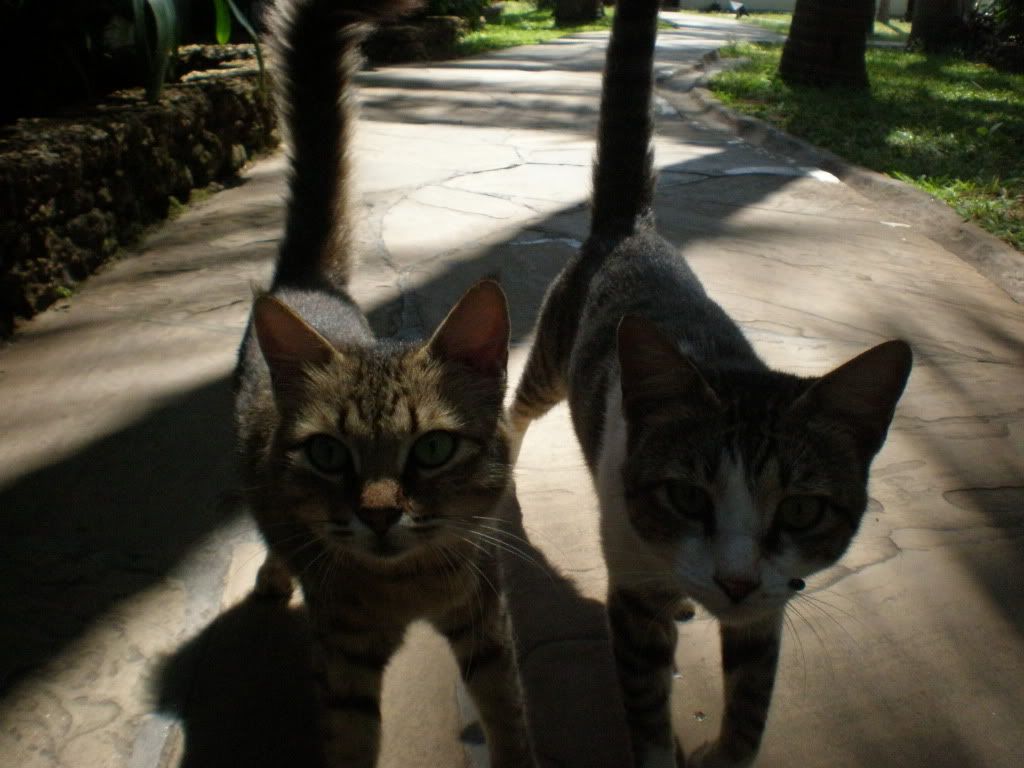
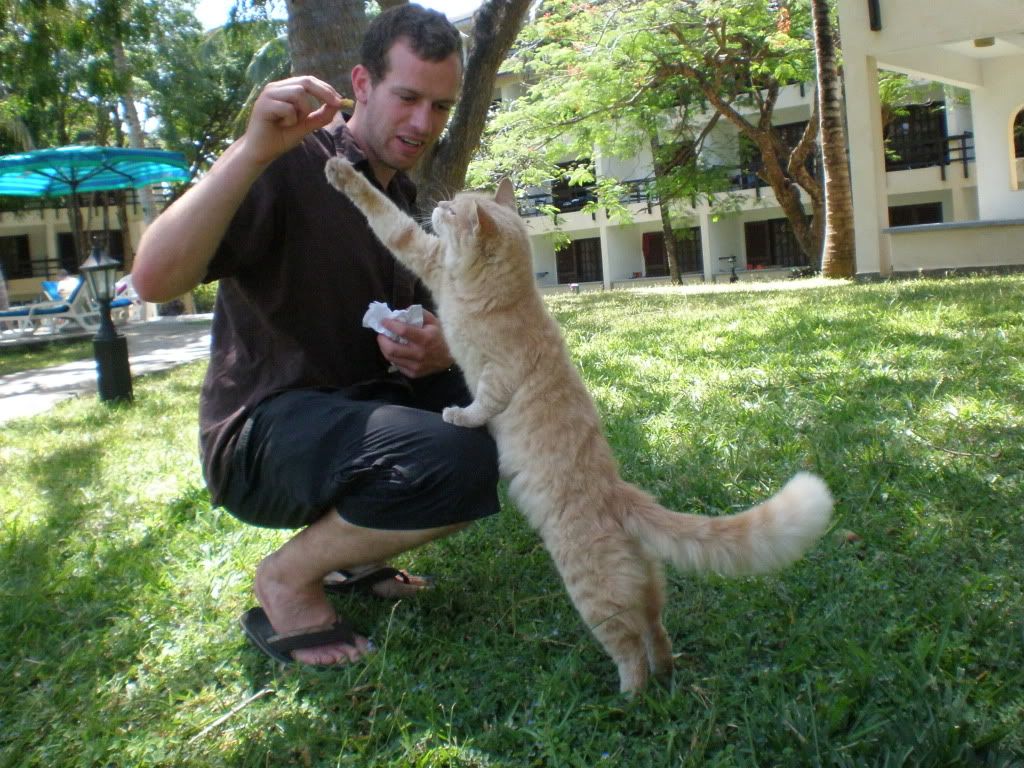
This is what it looks like: a primary school advertised for sale on a supermarket notice board. Also, a masai fella who watched England beat Croatia with me. They have lots of stories about the drought, but many are actually locals. They have problems, too.
They have lots of stories about the drought, but many are actually locals. They have problems, too.

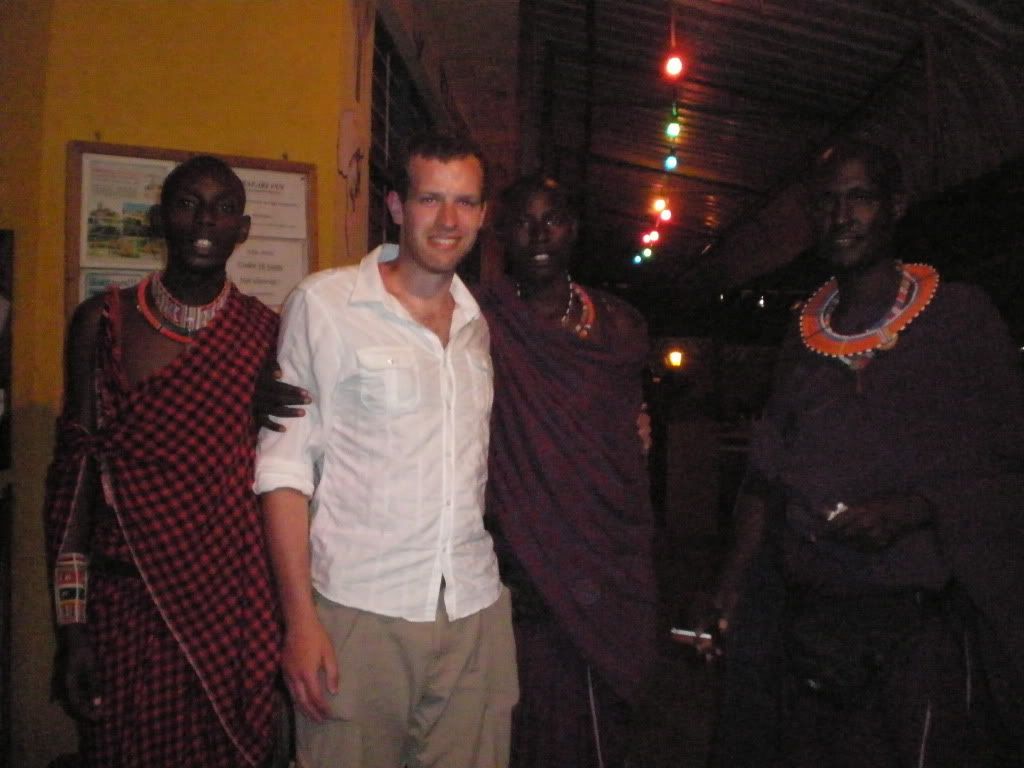
We also went to a place called Haller Park, which is a former slag heap that the cement company has turned into a successful inner city park! It's wonderful, and has crocodiles, hippo, and other animals living naturally in spacious enclosures over 8km2. They put fish into the ponds to control mosquito larvae and as a supplement to the croc's diet. They put live gecko in with the snakes as food. Over here it would seem cruel to some, but people there put up with worse.
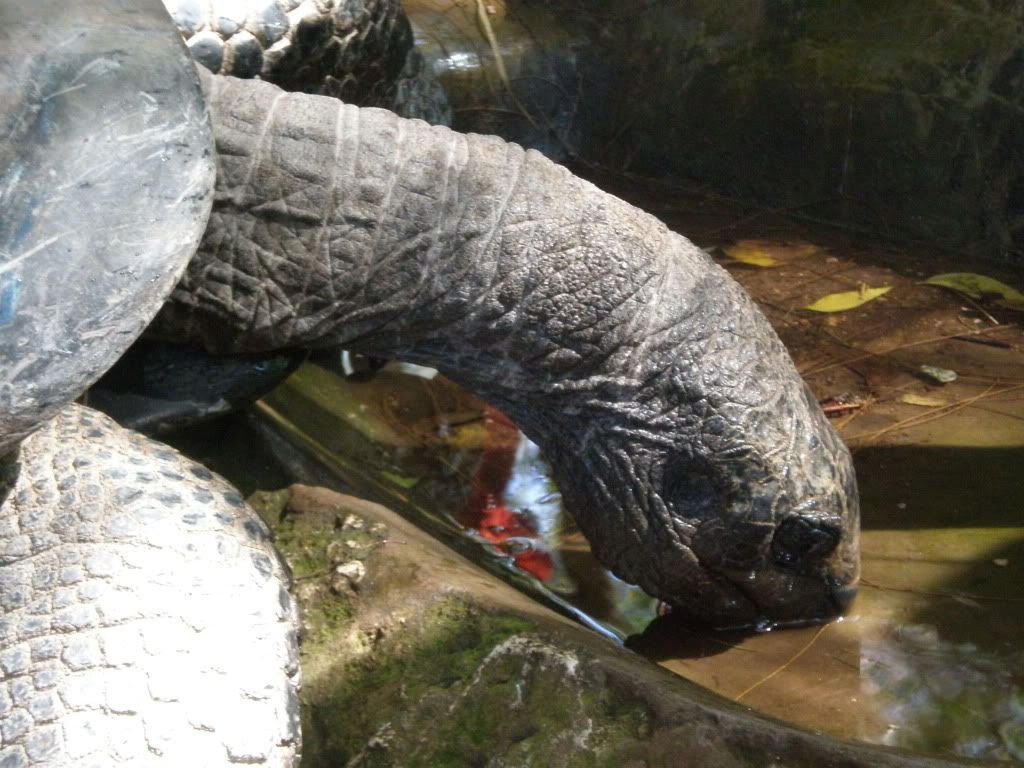
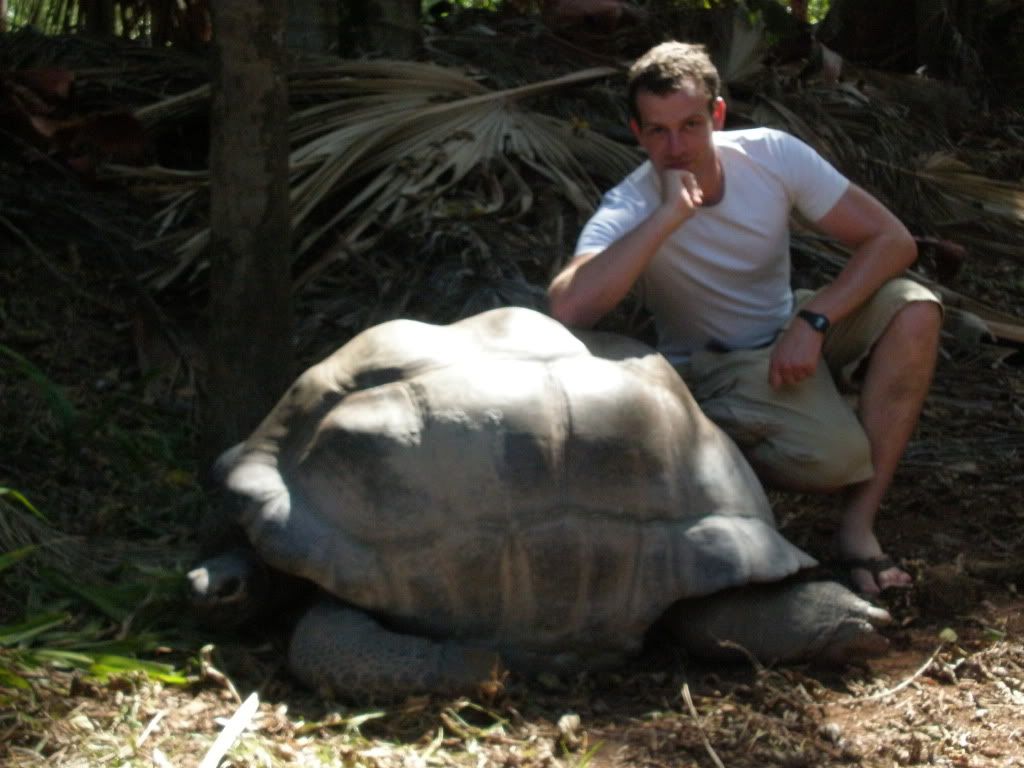
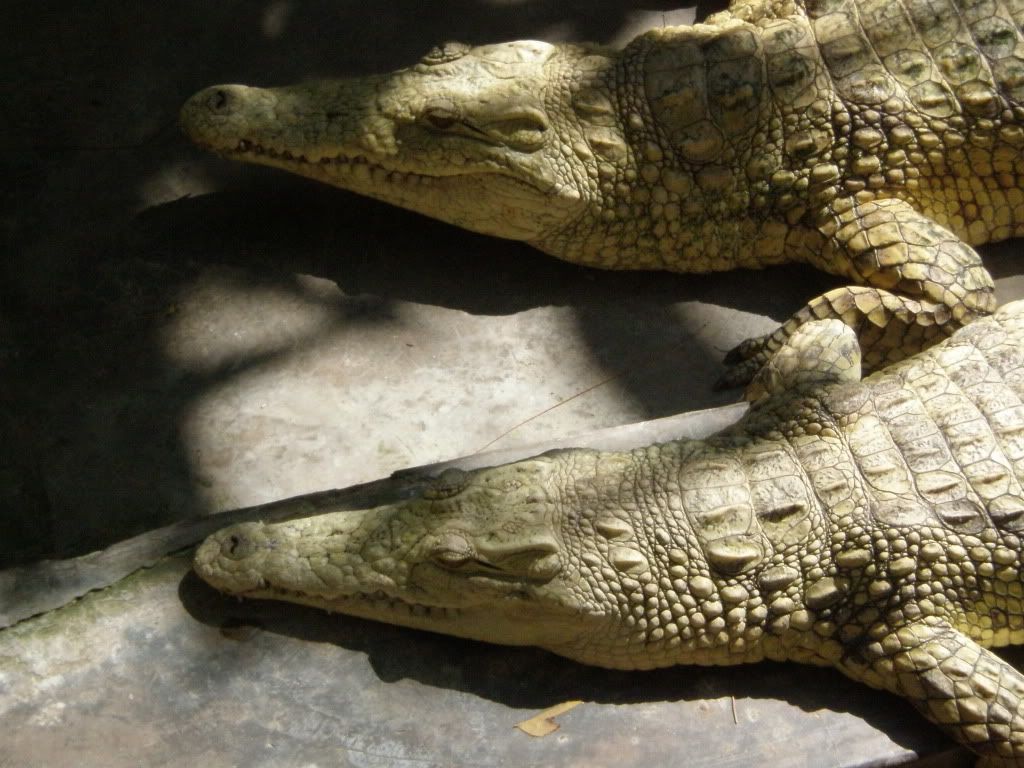
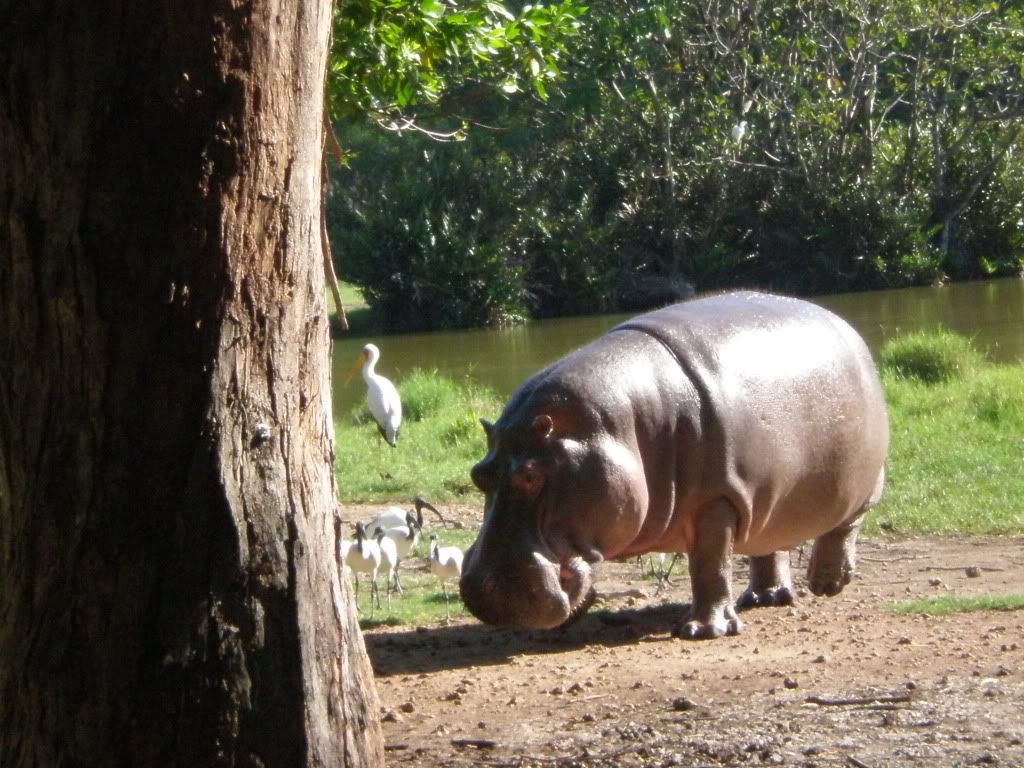
Towards the end, I heard that there had been an accident and someone from the hotel had drowned. You may have heard about it in the news. A young couple went deep sea fishing and didn't make it past the reef 400m from the beach. Whenever we travelled there we saw people carrying yellow 20L plastic drums that originally held cooking oil, but were being used to ferry water around. Lots of people seemed to have lost relatives. Having lived in China for two years, I thought I'd seen poverty, but this was different. Our safari driver said that in his home village people walk 10km to get water, and this under the equatorial sun. Visiting africa for the first time was an enriching experience, but perhaps the greatest benefit to me was to have it driven home just how easy and safe my life is. I've never appreciated drinkable tap water so much.
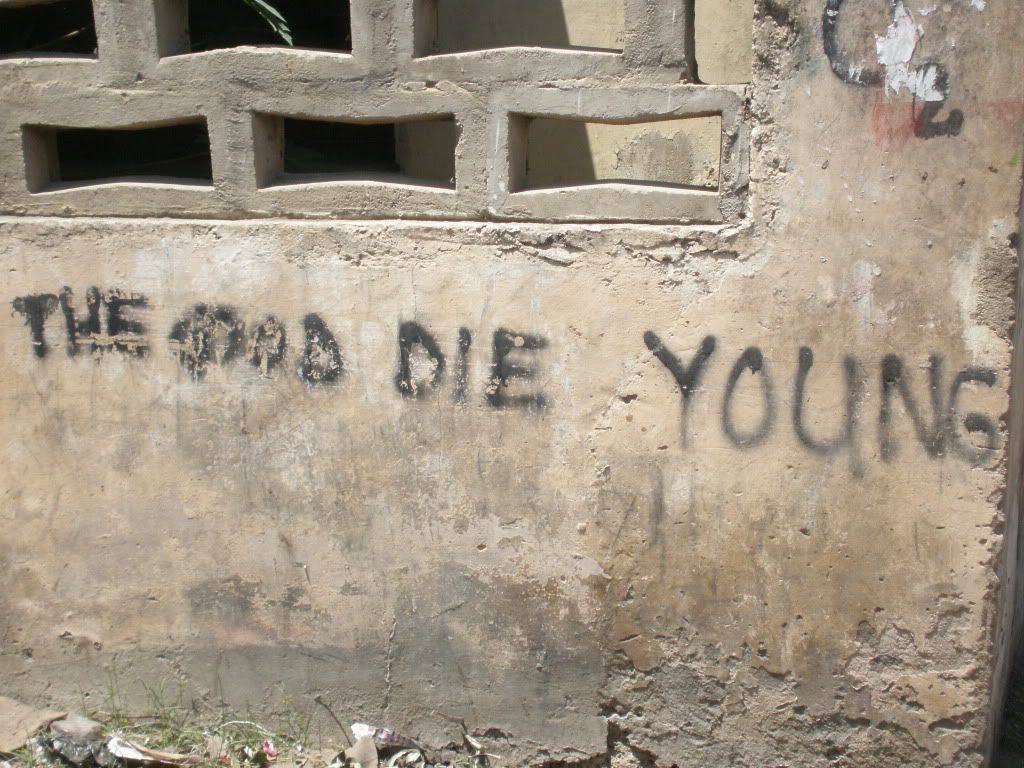
Without leaving the hotel it was possible to see animals like yellow weaver birds, camouflaged gecko, vervet monkeys and this 18" lizard, which wasn't scared of me at all. It could be found napping by the pond every afternoon. The monkeys steal from people's rooms, will take food from your hand, and are very crafty. They sometimes make an appearance at dinner when they know no one is looking- bread disappears from side plates.


We went on safari to East Tsavo, which is ginormous and convenient to get to. Animals like giraffe, elephant, zebra and the various impala/gazelle/ dik dik are easily seen, and we saw 7+ lionesses. The voi safari lodge was idyllic. Fed by a spring, it overlooked the park like a kind of paradise. Having seen so many documantaries, I thought I knew all the local animals, but there were a lot of surprises; eagles, owls, massive porcupines, rock hyrax that let you get within a metre of them! In Tsavo West there were less animals and it was very dry. People who had been to Amboseli national park said that they could see animals dying because of the drought, and sometimes smell death in the air. The people there are faring little better. I'm glad I didn't go.



I thought cats were the same everywhere, but cat's that are semi-wild and don't get fed are very different from the pampered animals I'm familiar with. They grab your hands with their claws if you're holding food. On one occasion I was feeding fish in the hotel pond, and a cat came over to watch. I threw the bread closer to it because it amuses when cats splash at the water. Within two seconds it had punched the water three times and pulled a one pound tilapia out. It ate it right beside me! I'm an accessory to fish-murder! People and cats alike are hungry in Africa. You can see tilapia on sale at the fish counter, but they're a native of the nile and greedy little fellas that probably grow fast and are easy to farm as a result.



This is what it looks like: a primary school advertised for sale on a supermarket notice board. Also, a masai fella who watched England beat Croatia with me.


We also went to a place called Haller Park, which is a former slag heap that the cement company has turned into a successful inner city park! It's wonderful, and has crocodiles, hippo, and other animals living naturally in spacious enclosures over 8km2. They put fish into the ponds to control mosquito larvae and as a supplement to the croc's diet. They put live gecko in with the snakes as food. Over here it would seem cruel to some, but people there put up with worse.




Towards the end, I heard that there had been an accident and someone from the hotel had drowned. You may have heard about it in the news. A young couple went deep sea fishing and didn't make it past the reef 400m from the beach. Whenever we travelled there we saw people carrying yellow 20L plastic drums that originally held cooking oil, but were being used to ferry water around. Lots of people seemed to have lost relatives. Having lived in China for two years, I thought I'd seen poverty, but this was different. Our safari driver said that in his home village people walk 10km to get water, and this under the equatorial sun. Visiting africa for the first time was an enriching experience, but perhaps the greatest benefit to me was to have it driven home just how easy and safe my life is. I've never appreciated drinkable tap water so much.



